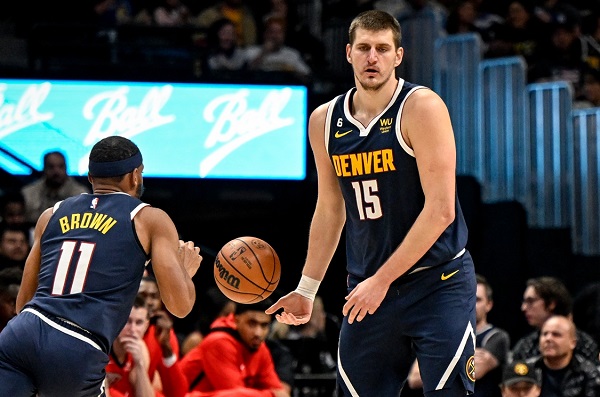NBA Needs To Fix Load Management – And It Must Work Alongside Players To Do So

‘Hit em where it hurts’ seems to be the premise of a concept that would target the overuse of load management by linking NBA awards to games played for the players vying for them, as originally reported by The Athletic. Although vague, the idea concentrates on having a large number of appearances, a significant element for the important awards given out each season.
Clearly, load management has become excessive. Fans lose out on seeing their favorite performers repeatedly because of rest-pretend injuries. Here, the NBA has a significant issue. While being vague in its specifics, the proposal that has been put out in the media has some promise.
Nevertheless, when the concept of using rewards to push players to play more games was brought up in discussions with decision-makers throughout the league, two consistent replies emerged: It’s a wise choice. And it will probably succeed.
One executive told CBS Sports that “something tells me athletes won’t really care at the end of the day.” Another executive said that the NBA would never let it happen because too many players’ contracts are impacted by those playoff honors, and agents utilize those honors to build benchmarks and worth during contract talks.
All of the above is true. And because of this, a league that has done a tremendous job maintaining a fair relationship with the players union and a solid feeling of mutual respect between the association’s commissioner and its stars must take action.
The NBA has some political clout as a result of these two factors. It’s time to use it. The NBA as a product is doing well. While LeBron James smashed the all-time scoring record 20 years into an unbelievable career, it is bursting with new stars coming up. Since Larry Bird in the early 1980s, Nikola Jokic has been attempting to win the MVP award three years in a row. He is currently the heavy favorite at sportsbetting.ag at -250 moneyline odds.
Leonard and Antetokounmpo look to make their permanent mark. The Suns are suddenly a must-watch squad as Ja Morant, Jayson Tatum, and Joel Embiid are all vying for their first championship, while Kevin Durant joins yet another super-team. Nevertheless, superstar games succeed only if the best players play in them. This depends on the stars in a sport that also doubles as an entertainment industry for it to operate effectively and efficiently, fair or not. It’s time to start linking the game’s awards to the idea that availability is the ideal skill and business strategy.
Only Bill Walton, who played 58 games back in the 1977–1978 season, has ever earned an MVP award during an 82-game regular season without playing at least 71 games. 35 MVPs participated in at least 80 of the 82 games in each of the previous 52 82-game NBA regular seasons.
So, you could be thinking that the 35 out of 52 statistic seems acceptable or even good, but look more closely at the data. Walton was the only MVP of the 1970s to play less than 80 games, hence 80 games were played by 90% of award winners. The ratio fell to 70% in the 1980s. Just four MVPs surpassed 80 games in the previous 10 82-game seasons. With all the above considered, a 70-game version of the NBA seems like a very solid option.
Embiid is on track to participate in 64 games this season after participating in 44 of the Sixers’ 56 games. Giannis is expected to play in all 66 regular-season games for the Bucks. At his current pace, Doncic will play in 68 games for the Mavericks. For players of that quality, at least those being mentioned as probable MVP winners, that is outrageously too few games.
The NBA is a league for stars. Also, the entire NBA becomes weaker without them on the ground as often as feasible. Now that All-Star weekend is over, Adam Silver must make this trial balloon his office seems to send up into a harsh, cold reality as the league and the NBPA consider a new CBA and all the details it would involve.
















